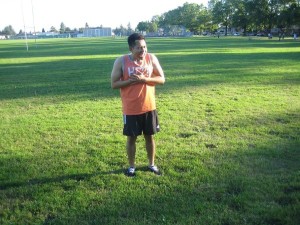
The feeling you get of your heat ‘racing’ or pounding is called heart palpitations. Heart palpitations can be felt in the chest, neck and throat.
These are common feelings many people get:
- Feeling unusual about your heartbeat
- Feeling as if your heart skipped a beat
Note that your heart rhythm may be completely normal while you experience heart palpitations.
Considerations
The average normal heartbeat is 60-100 times per minute. People who regularly exercise or take medications due to certain conditions may have a slower heart rate than the normal rate—which may be as low as or even lower than 55 beats per minute.
A fast heartbeat—above normal i.e. 100 beats per minute—is called a tachycardia, whereas a slower rate is called a bradycardia. However, people may experience occasional extra beats known as extrasystole.
Even though heart palpitations are mild conditions, it is important to note that this can be only judged by the sensations one feel that determine if the person is actually experiencing an abnormal heart rhythm, known as arrhythmia.
Abnormal heart rhythms are usually caused by the following conditions:
- Palpitations indicate a sign for an upcoming known heart disease
- Severe risk factors that may result in heart disease
- Abnormal electrolyte levels such as low potassium levels in the blood
- Abnormality in the valves of the heart
Causes
Heart palpitations are often mild conditions that occur as a result of:
- Nicotine use—such as through smoking
- Caffeine
- Illegal drugs such as cocaine
- Anxiety, overwork, stress, fear
- Diet pills
- Strenuous exercise
- Fever
Some of the most severe causes of heart palpitations include:
- Heart disorders
- Abnormal electrolyte levels in the blood—low potassium levels
- Abnormality of the heart valves
- An overactive thyroid gland
- Certain medication for asthma, heart problems and high blood pressure
- Low oxygen levels in the blood
First aid
1. See your doctor if:
- Your extra beats are recurrent—this can be more than 6 beats per minute
- You are likely to develop heart disease because you are suffering from diabetes, high cholesterol or high blood pressure
- You experience unusual heart palpitations
- Without any exercise, fever, anxiety or other stimulants your heart rate is above normal i.e. 100 per minute.
2. Control palpitations
- Try to get rid of any stimulants that may cause heart palpitations—this can be anxiety, stress, or panic
- Stop taking caffeine—coffee, fizzy drinks, colas, energy drinks, chocolates etc.
- Quit alcohol and smoking
- Avoid taking illegal drugs
- Avoid medication such as decongestants and cough syrups
3. Doctor’s appointment
- Regardless of the cause, call your doctor to examine our condition as palpitations may occur due to serious causes such as heart valve abnormality or heart rhythm problems
- Make sure you call your doctor if you feel any changes in your heart palpitations
When to seek medical attention
- If you are experiencing heart palpitations for the first time.
If the following problems occur in a person, seek immediate medical help:
- Chest pain
- Breathlessness
- Sweating in an unusual way
- Dizziness
- Light-headedness
- Confusion
- Feeling of tightness or pressure in the chest, arms, neck, jaw or upper back
- Unconsciousness
Learn More
To learn more about severe medical emergencies related to heart palpations, such as circulatory emergencies, enrol in workplace approved first aid and CPR courses with a training provider near you. We are partnered with the top providers throughout Canada that provide educational, fun, and competitively priced courses.
